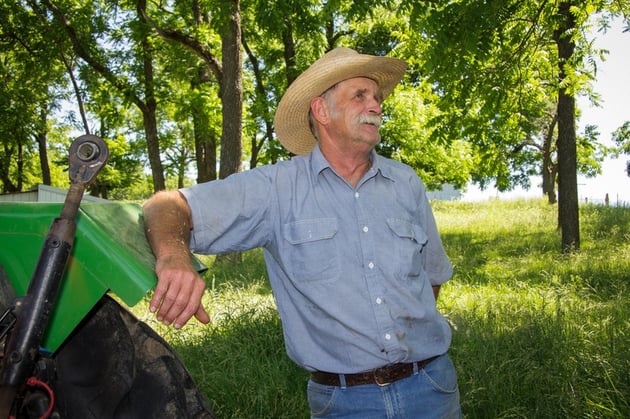#thankafarmer
On October 12 this year, people across the U.S. will celebrate farmers. While records of National Farmer’s Day events date back to the 1800s, It’s hard to believe that the practice of farming itself dates back approximately 12,000 years—especially when you look at today's high-powered machinery, and sophisticated scientific methods, but it’s true. In fact, recent research indicates farming could be considerably older.

Farming has its roots in an area east of the Mediterranean Sea, where early farmers raised barley, wheat, chickpeas, and lentils in addition to sheep and goats. Amazingly, thousands of years later, many of these crops still represent the foundation of modern diets. Even more remarkable, these crops are still very popular—especially among farmers in the Dakotas and Pacific Northwest.
Early farmers were the world's earliest agronomists, having to learn which grains were the highest yielding and selectively breed only their best seeds; these early farmers laid the groundwork for a practice that continues today, albeit in a more scientific way.
Early ranchers were the world's first genetic engineers, breeding and domesticating animals, choosing to breed bigger, stronger, more docile livestock for meat and milk. Subsequently, this breeding led to easier to control and more productive herds, the benefits of which we are still seeing today.
Most importantly, what the earliest farmers and ranchers were able to provide to their civilizations was food stability, something that still challenges modern farmers. As the global population is predicted to rise to 9 billion people by the year 2050, farming has never been more important than it is today, and farmers will play a vital role in keeping yields on pace with population growth.
Although so much has changed over the last 12,000 years of farming, it’s astonishing to think about how much is the same. This October 12, post #thankafarmer on National Farmer’s Day in honor of your local farmers' contribution to your life and for continuing a 12,000-year-old legacy.


